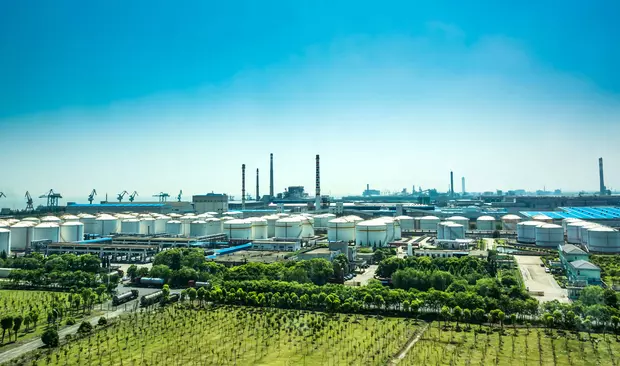How ERP Software can make manufacturing greener

With temperatures around the world in the headlines for all the wrong reasons, the spotlight is on manufacturers to reduce their environmental impact. As sustainability gains global momentum, manufacturers are actively seeking innovative solutions to build a greener future.
So, how can software help? In this blog, we'll explore the ways ERP software can be used to make manufacturing processes greener, including real-life examples of success.
Where ERP software can contribute to a greener manufacturing future
ERP software bolsters your sustainability efforts in multiple ways:
Reducing waste: By streamlining your production processes, you can better monitor and manage waste materials, helping you to maintain compliance with environmental regulations while identifying opportunities for further waste reduction. This is a more efficient use of resources and can also deliver a decrease in harmful emissions.
Enhancing supply chain sustainability: With greater visibility of your supply chain, you can more easily identify areas for improvement and implement more sustainable practices. This may include sourcing materials from environmentally responsible suppliers, reducing transportation emissions, and optimising stock management, ensuring that you only store the right amount of the right products.
Increasing efficiency and productivity: By streamlining and automating otherwise manual processes, you can operate more efficiently, diminishing waste and energy consumption. For example, consolidating jobs or doing production runs to stock fast-moving items optimises your productivity.
Monitoring and optimising energy consumption: Using shop floor data collection, you can track job runtimes, enabling you to pinpoint inefficiencies and implement targeted improvements. Integrating your machine monitoring technologies can also allow you to capture and analyse additional data, such as electricity and gas consumption. Once you know where your consumption and waste are, you can review possible areas to make further savings.
Environmental accreditations: If you work in an industry that generates significant waste such as food, plastics or chemical, ISO accreditations like ISO14001 will be a necessity for you to trade with certain companies. The right system will give you the framework needed to set up an effective environmental management system.
Real-Life Examples of Greener Manufacturing through ERP Software
Here are some examples of where ERP software has made a demonstrable improvement to manufacturing processes for environmental benefit:
- Reduction in both inbound deliveries and outbound courier collections: By having visibility of supplier deliveries and being able to consolidate shipments to customers, you can significantly reduce your carbon footprint. An electronics manufacturer was able to achieve this, meaning that they had a single van both delivering any parcels and collecting goods from despatch. A further benefit was that they were able to negotiate better rates, making them more competitive.
- Reducing and controlling waste byproducts: These often have costs associated with their disposal. A company manufacturing chemical flavourings and fragrances had to deal with many of their chemicals having expiry dates. Tight FIFO (First in, First out) stock control ensured that waste was minimised.
- Return and recycle: A packaging company offered a new waste collection service for their customers, collecting all cardboard waste, which was then used for the company’s bio furnace, powering the company and saving the waste going to landfill.
- Grouping similar jobs together: A plastic injection moulding company was performing inefficient product runs and not consolidating jobs, resulting in unnecessary machine cleaning and wasting hundreds of kilos of material on a monthly basis. Once they had better visibility of orders and stock requirements, and could subsequently group them, waste was reduced from 5% to 0.1%.
How ERP Software can help you manufacture more sustainably
In addition to providing greater visibility and streamlining day to day processes, ERP software offers a wide range of features that can help pave the way for a more sustainable manufacturing future. These include:
- Data analytics and reporting: Effortlessly collecting and analysing data from across your manufacturing operation, you can start making data-driven decisions to improve processes and boost sustainability from a single source of truth.
- Integration with other systems: Seamlessly integrating with other systems, such as energy management and waste tracking tools, you can build a comprehensive view of your business’ environmental performance. Read our white paper on integrating MRP/ERP with other data systems here
- Automation and process optimisation: Automating processes and optimising workflows can help you to operate more efficiently, reducing waste and energy consumption. By simply improving your production planning, you will have more breathing space to identify any further inefficiencies for improvement.
Summary
By monitoring and optimising machine runtime and production planning, reducing waste and emissions, enhancing supply chain sustainability, and increasing productivity, an ERP system can transform your manufacturing processes to be much more eco-friendly.
If you’re interested in exploring more ways to reduce the environmental impact of your manufacturing operations with an ERP system, speak to an expert today.